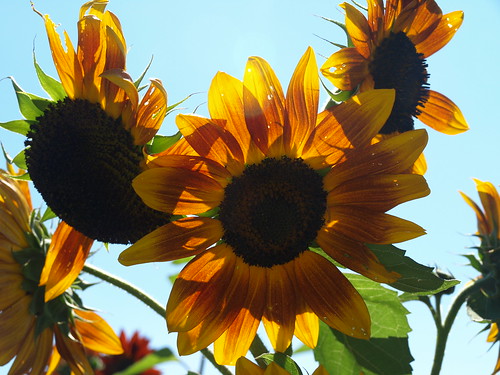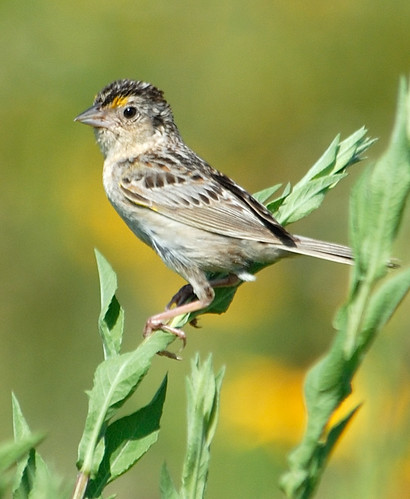
With an increased demand for locally grown food, many farmers are finding new markets for their products that are closer to home. But what some New Jersey farmers are doing to expand their market base is strictly for the birds!
Thanks to a unique partnership forged with support from the Conservation Innovation Grants program (CIG) of USDA’s Natural Resources Conservation Service (NRCS), local farmers collaborated with the New Jersey Audubon Society to develop and produce a Jersey-grown birdseed mix. New Jersey Audubon wanted the seed for their annual “Field to Feeder” fundraiser. Before this local mix was created, the organization was trucking seed 1,500 miles from the upper Midwest each year.

To get the Jersey-grown birdseed effort underway, Mark Kirby of Derwood Farms applied for a Conservation Innovation Grant through New Jersey NRCS. The grant proposal offered an innovative way to enhance bird habitat and maintain productive farmland. CIG-funded projects use innovative technologies and approaches to address natural resources.
NRCS awarded Kirby with a Conservation Innovation Grant in 2008, and he recruited eight other farmers, who set aside small parcels – about 30 acres each – to plant sunflowers to produce certified New Jersey-grown birdseed.
Production of sunflowers and other plants that can be grown for birdseed is beneficial for more than just New Jersey’s avian population. It also boosts the local agricultural economy and preserves farmland where there is great pressure for development. The farmers involved are guaranteed sale of their product and have a new market to develop.
New Jersey Audubon Society now has a local source for quality birdseed, as well as a means to increase grassland habitat and promote environmental awareness—as well as a conservation ethic.
Members of the local community have the immeasurable benefit of living in an area that supports viable farming. They can also purchase fresh, locally sourced birdseed. And when the sunflowers are in bloom, the beautiful vistas are priceless!
The birds, of course, are perhaps the biggest winners of all: they have food and valuable natural habitat to enjoy. For every five acres planted for birdseed, New Jersey Audubon manages and maintains one acre of grassland habitat for threatened and endangered birds. More than 50 acres are now being managed for grassland birds like Eastern meadowlark, grasshopper sparrow and bobolink.
Audubon markets the New Jersey-grown seed under the name S.A.V.E (Support Agricultural Viability and the Environment). Last year, sales increased 300 percent. As a plus, these funds directly support the conservation, education and research objectives of New Jersey Audubon Society.
Find out more about Conservation Innovation Grants
Check out more conservation stories on the USDA blog
Follow NRCS on Twitter


